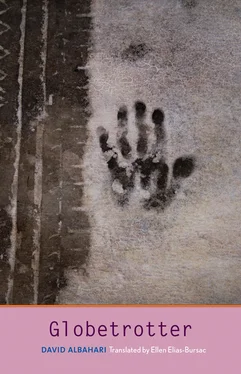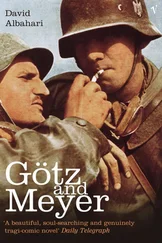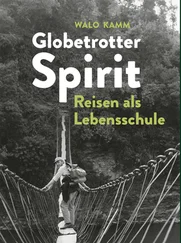I did not entirely agree with him, but at that moment it didn’t occur to me to invoke Marx, Lefebvre, Marcuse, or anyone else of the old guard, though had I done so, I know it would have been a big surprise for him. I had no idea, to be fair, what to say. I said nothing. Somehow I had imagined this differently: his visit to the studio, a viewing of the drawings, the story of the maturation of the face, his face, of course, but also mine, because what was surfacing under my brush or pencil belonged to me, too — it was mine as much as his — and then us conversing in hushed whispers, as if we weren’t alone, as if those faces on the drawings were real around us, which perhaps was not far from the truth, especially when one has in mind that each person is actually a multitude of people and hence a multitude of faces, some of which are totally unlike the others. Instead of that, Daniel Atijas began talking about the threads, which he said could explain to him and me, as if I cared, the failure of Ivan Matulić’s grandson to catch on to what was going on behind the simulation of the new Croatian reality. He could speak in the same vein, he continued, about the simulation of the new Serbian reality, or any reality in the region of what used to be his country, since there was no difference among them: all those new realities were founded on the tried-and-true mechanism of simulating communist reality, so to reference one implied all the others, but the facts from the story that Ivan Matulić’s grandson told us, the place-names, events, and names of people, were keeping him in that context. This does not mean, he said, that any one part of the former whole is better than any other, nor does it mean that any part is worse.
He was sure, he said, that all the parts were equal, and at the time right before and immediately after the breakup they were doing nothing more than switching one simulated reality for another. The difference, he said, is in how long each of these newly simulated realities persisted, and with the exception of the northernmost and southernmost parts of his former country, they were still right there. It wouldn’t surprise him, said Daniel Atijas, if I couldn’t follow what he was saying, which was, in fact, the case, both because of my poor knowledge of the historical and geographic details of his former country and because of my unarticulated but no less real refusal to face the truth of how I had gambled away the chance I had been waiting for all these days. I can see now that while he was talking about the simulating of reality in his former country I was simulating reality in my studio, trying to convince myself that things would be playing out in a way they never would. I did not admit to him that I didn’t understand what he was saying, though I did admit to having troubles, but he, I added, should ignore them. He did not. He spent the next forty minutes, if not longer, setting out the way he saw Ivan Matulić’s grandson’s lack of compass, not stopping for a moment to consider my approval or possible disagreement. What had, in short, played the greatest part in diverting Ivan Matulić’s grandson onto the wrong path, according to Daniel Atijas, was his conviction that what was taking place in Croatia was real change. He could not have known that the new government was using the wiles of the old government to simulate a new reality and attempting to conceal the truth of what was really happening.
A simulation of triumph, a simulation of democracy, masked the truth of the absence of democracy, complicity in war crimes, the collapse and ruin of the middle classes, the absence of any willingness to ease ethnic conflict, exactly, said Daniel Atijas, as the new government in Serbia did. Having arrived in Croatia, Ivan Matulić’s grandson had no idea that he was moving through a territory that wasn’t really there, a reality suspended like stage sets in a theater. No one told him, Daniel Atijas was convinced, for the only people who could have told him were people who had lived behind what they called the Iron Curtain, not the political emigrants and insurgents who fled right after World War II and for whom return meant only one thing: revenge. Besides, as a person who had grown up in the context of a North American view of the world, Ivan Matulić’s grandson believed that what you see is what you get, said Daniel Atijas, whereas any child born under eastern European communism would immediately say that never, never must one take what one sees for granted. When Ivan Matulić’s grandson finally understood this, and when he saw the reality behind the illusion, or at least sensed the true face of the reality of the new-old Croatia, he was immediately ready to abandon everything, which he did, said Daniel Atijas, but not without consequences. The false reality, or rather insight into its perverted structure, inevitably requires a reexamination of the historical perspective, the historical bases on which reality rests, and once one enters, Daniel Atijas remarked, there is no way out. Having shaken his reality, Ivan Matulić’s grandson razed the past and plucked the veil from distorted history, or at least from the version of history that had been shown to him as uncontrovertibly true.
And so it was that he found himself in the middle of a country to which his heart still belonged, a country that was hemorrhaging badly, no doubt about it, but which now stretched out before him in all the poverty of its historical legacy, showing itself as a morass of outdated ideologies, Ustasha crimes, and guilty consciences. This comparison was not, perhaps, the best, said Daniel Atijas, but it was all he could think of: what happened to Ivan Matulić’s grandson was like being a groom who has found out, just when he should be tenderly kissing the pursed lips of his bride, that she slit the throat of her previous husband. This gives the groom, said Daniel Atijas, two options: he can keep on his trajectory toward the bride’s lips, hoping that the gods will favor him, or he can run as fast as his feet carry him, which, by all counts, is what Ivan Matulić’s grandson did. But love had already nestled into his heart, and there, like a worm, it continued to unnerve him, driving him, the grandson — not the worm — to question himself, to doubt his every choice, to keep coming back, to blame himself for things he hadn’t done. He became, said Daniel Atijas, a culprit with no guilt, a criminal without a crime, an executioner with no sacrificial victim. Something that seemed at first like a well-intentioned adventure, a jaunt that could bring him nearer to those he was distant from, including members of his family, turned, despite all generic rules, into a tale about a fall, a horror story, an endless silence from which no voices could be enticed.
He couldn’t speak for me, said Daniel Atijas, but for himself he was sure that such a spiritual condition could not last long, especially when, as with Ivan Matulić’s grandson, he found himself in a situation for which he was not responsible, in which he had done nothing wrong. I didn’t know what to tell him, just as I didn’t know whether, with these words, he meant to justify Ivan Matulić’s grandson or, possibly, to blame him. Ignorance, and Daniel Atijas accepted this, was no excuse; not knowing does not mean being free of responsibility; intending is sometimes the same as doing. I had nothing new to say, and there was nothing new that could be said. I didn’t want to say anything. All I wanted was to keep my mouth shut, and if there was something that didn’t compel me, if there was a story, at least as far as I was concerned, it was over, and it was the story of Ivan Matulić’s grandson. And besides, despite all my efforts to follow the details as closely as I could, despite the hours and hours we had spent together, sober and drunk, I was still missing meanings that the two of them, sometimes without a word, were perfectly attuned to. Daniel Atijas interpreted my silence as a sign of continued interest, and he went on about the skewed nature of the world into which, as into the world beyond the looking glass, Ivan Matulić’s grandson had stepped. The first thing that was skewed, in Daniel Atijas’s opinion, was the trajectory of time along which Ivan Matulić’s grandson traveled, and that was the inevitable reflection of something else that was skewed, the time frame of fifty years back, when the ideological impact of a state was measured by its insistence on the eradication of everyone who stood apart, either through religion or ethnicity, from the majority of inhabitants.
Читать дальше







![David Jagusson - Fesselspiele mit Meister David [Hardcore BDSM]](/books/486693/david-jagusson-fesselspiele-mit-meister-david-har-thumb.webp)




